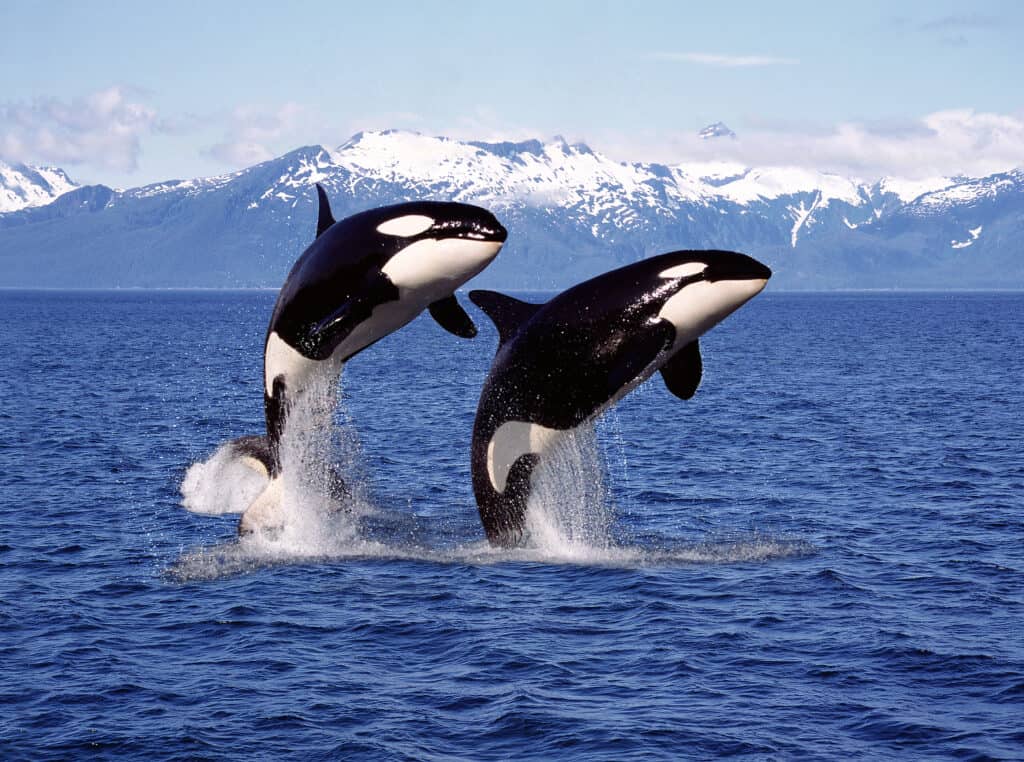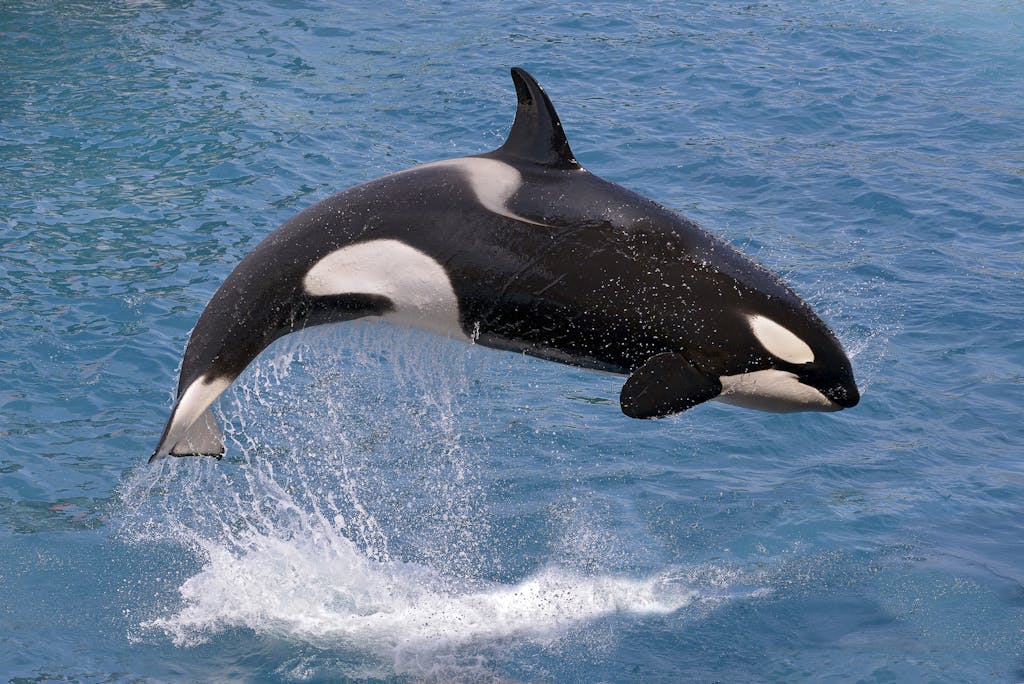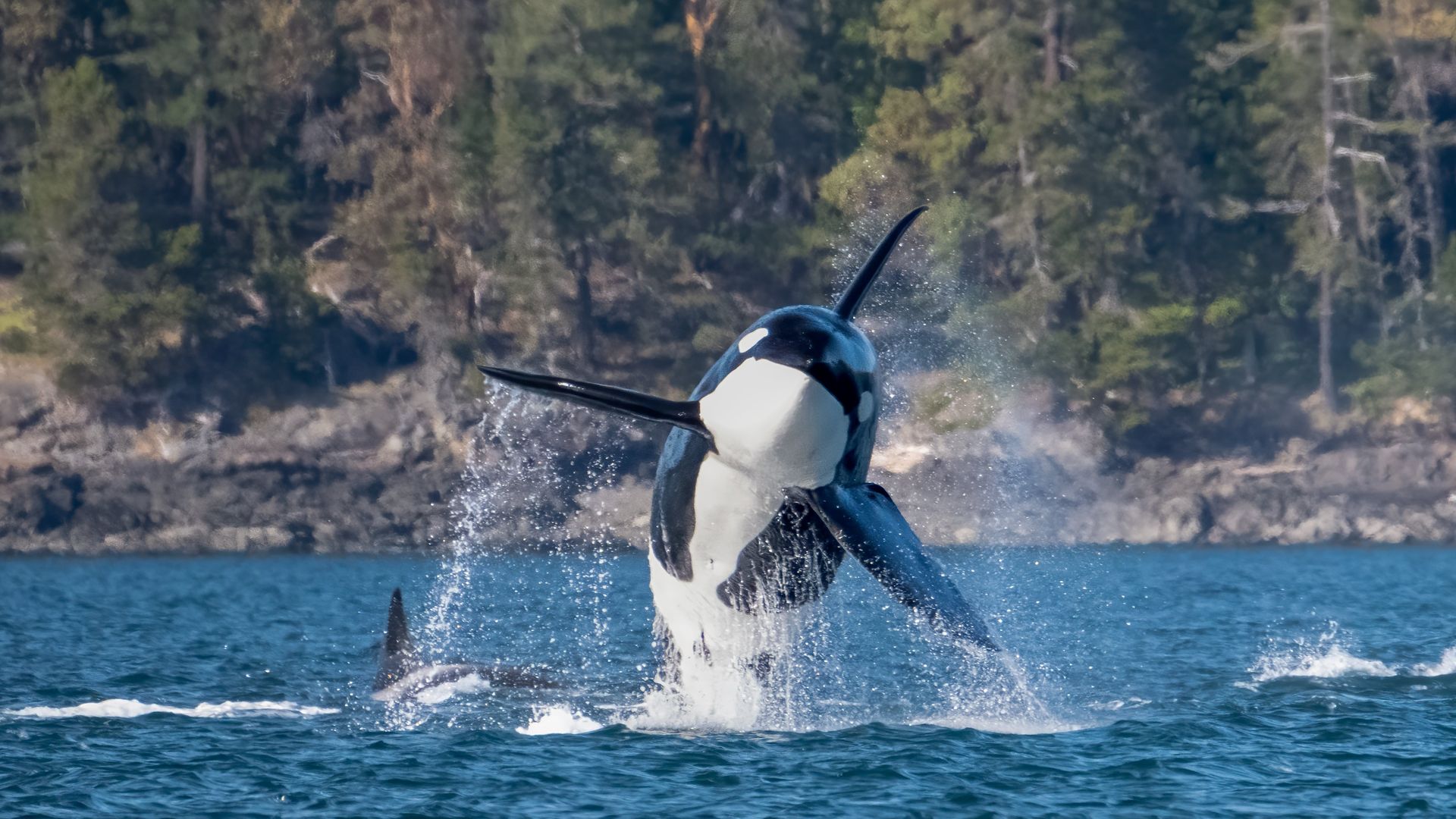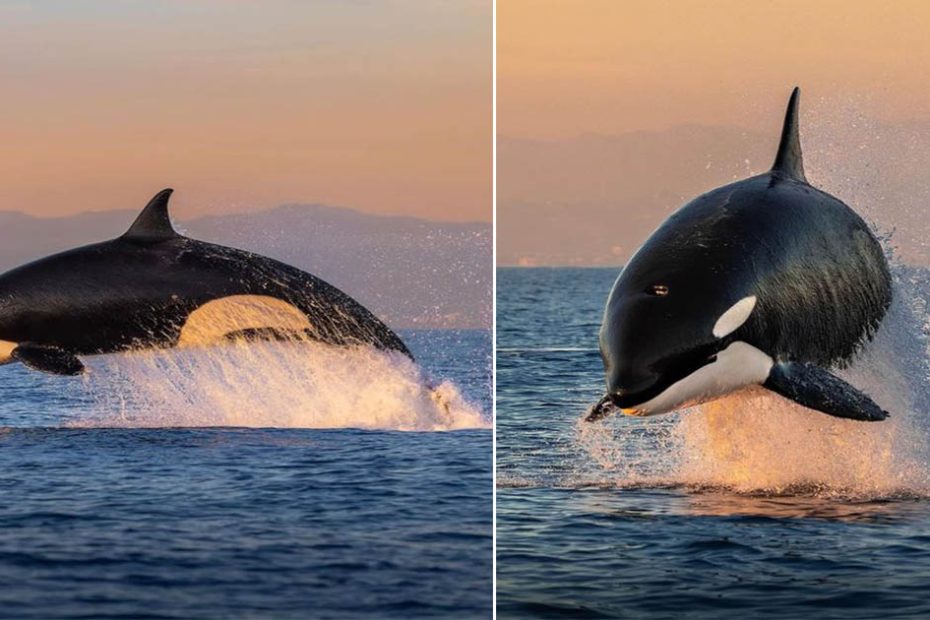

In the vast expanses of the world’s oceans, one creature reigns supreme—the killer whale, or orca. This apex predator, known for its intelligence, power, and striking black-and-white markings, commands both fear and admiration as it navigates the deep waters with unparalleled grace.
:max_bytes(150000):strip_icc()/GettyImages-826128004-6cb21c0037424480b047a648e294e669.jpg)
The killer whale, or orca, is the largest member of the dolphin family and holds a position at the top of the marine food chain. With a sleek, streamlined body and a distinctive dorsal fin that can tower over six feet in height, the orca exudes an aura of authority as it effortlessly glides through the waves. Its black-and-white coloration adds a dramatic contrast, making it one of the most recognizable and awe-inspiring marine creatures.

Despite its ominous name, the killer whale is not a mindless killer. Highly intelligent and social, orcas live in close-knit family groups known as pods. These pods exhibit complex communication patterns, hunting strategies, and even distinct cultures, passing down knowledge from generation to generation. Observing these magnificent creatures in the wild reveals a level of cooperation and intelligence that sets them apart in the marine realm.

One of the most striking features of killer whales is their hunting prowess. With a diverse diet that includes fish, seals, and even other whales, they have earned their place as formidable apex predators. In coordinated attacks, orcas demonstrate their strategic skills, using teamwork to isolate and overcome prey much larger than themselves. This combination of intelligence and predatory instinct has rightfully earned them the title of “wolves of the sea.”

The killer whale’s relationship with humans has been one of fascination and, unfortunately, exploitation. While admired for their intelligence and captivating performances in marine parks, there is a growing awareness of the ethical concerns surrounding keeping these magnificent creatures in captivity. Conservation efforts now focus on protecting their natural habitats and fostering coexistence rather than captivity.

In indigenous cultures, killer whales often hold a revered status, symbolizing strength, family, and guardianship. The iconic depictions of orcas in art and folklore further emphasize the cultural significance of these majestic creatures.

However, despite their awe-inspiring qualities, killer whales face threats in the form of pollution, climate change, and depletion of their prey due to overfishing. Conservation initiatives aim to address these challenges, emphasizing the importance of preserving the delicate balance of marine ecosystems.
In conclusion, the killer whale, with its awe-inspiring presence and complex social structure, stands as a testament to the majesty and mystery of the ocean’s apex predators. As we continue to unravel the secrets of the deep, it is essential to approach the conservation of these remarkable creatures with the same reverence and respect that their awe-inspiring nature commands.



